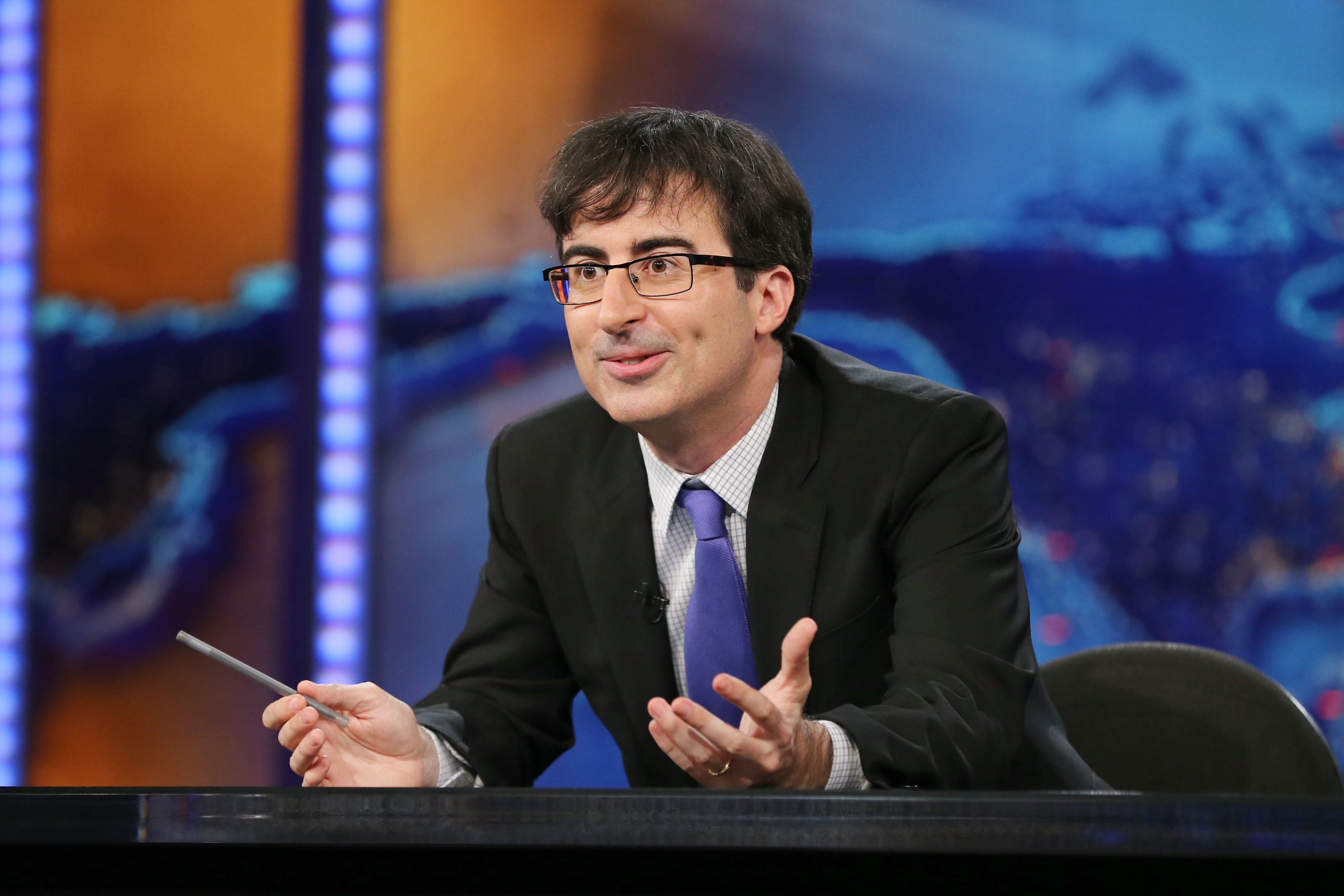Late-night comedy evolves with new generation of viewers

(Courtesy of Viacom Entertainment Group)
By Samantha Mannis
April 28, 2014 1:49 a.m.
The big wigs behind the late-night empire have finally done it. They’ve pried Jay Leno from his cemented “The Tonight Show” throne with a crow bar, thrust Jimmy Fallon onto the stage in all his youthful glory and promoted Seth Meyers to the 12:35 a.m. “Late Night” spot to finish off the night.
To top it all off, Stephen Colbert is succeeding the great David Letterman, who in 2015 will have to be practically carried off the “Late Show” stage on a gurney after enduring an exhausting 22-year run.
Late-night comedy is turning over a new leaf, making a transition and attempting to appeal to a new generation of audiences. This is only furthered by the premiere of John Oliver’s new HBO late-night show, “Last Week Tonight With John Oliver,” on Sunday, April 27.
Oliver, a correspondent for “The Daily Show,” filled in for Jon Stewart last summer when Stewart took a hiatus to make his directorial debut. The response was overwhelmingly positive, and viewers demanded more Oliver face time. Now, almost a year later, Oliver returns to the small screen with a channel, time slot and television show to call his own.
Oliver, Fallon, Meyers and Colbert are just a few of several late-night hosts that are rising to the comedic surface, giving a voice to the next generation after several decades of older comedians dominating the prime-time slots. These comedians not only represent a new generation of viewers, but also an evolving worldview.
As an aspiring comedy writer and general comedy enthusiast, it is exciting for me to observe the transformations in late-night comedy. I cannot tell you how many peers have told me watching Fallon or Meyers on “The Tonight Show” or “Late Night” has led them to discover classic “Saturday Night Live” sketches. They admit if it weren’t for their interest in and devotion to these late-night comedy hosts to begin with, they may have never viewed these pieces of comedy history.
Intrigued by the origins of these late-night personalities, a new generation of fans has dug deeper and discovered more about comedy than ever before. These comedians bridge a connection between younger audiences and relics, memes and stories from the past that would have otherwise remained uncovered.
Both Fallon and Meyers were descendants of the NBC dynasty, both writers and part of the cast of the show “Saturday Night Live.”
Reaching stardom a bit differently, Colbert was a writer on “The Daily Show” starting in 1997, prior to Stewart’s arrival, and continued when Stewart took over its hosting duties. Colbert, like Oliver, filled in as host several times when Stewart was absent, and also had some on-camera correspondent duties. Similarly to Oliver, Colbert received his own show in 2005.
A great thing about these featured comedians is that they are relatable to their viewers. Instead of having a glitzy and glamorous, one-in-a-million Hollywood “discovery story,” a majority of these comedy hosts have worked their way from the bottom to the top, starting out as “lowly,” but lovable, struggling writers.
It is this that makes them all the more likable to the viewer, and gives hope to that undeclared college student out there watching “The Tonight Show” on her laptop after a long night of studying with the hopes of making it as writer in the real world.
Out of all of these late-night hosts, however, it is Oliver who represents another demographic. He too has made his way up the ranks, but he gives a voice to the people who are always behind the camera instead of in front of it, appearing confident in who he is and who and what he represents.
Although there is much to look forward to from these youthful, energetic hosts dominating the television scene, they are predominately male. One issue that has been raised is the need for a female presence in late-night comedy. While there are many talented women making strides in comedy, late night is truly dominated by men, and women need to be more fully represented in the circuit.
Perhaps studio executives feel that highlighting female talent as late-night personalities will not attract viewers and will not contend with other rising male comedians in competing time-slots. The stigma that women are not funny has been prevalent in society for decades.
Even so, female actresses and comedians have managed to maneuver around the chauvinism in comedy for years and will continue to fight for their place in the spotlight, including in the late-night comedy world. It is crucial that audiences give women in comedy a chance and are open-minded so both men and women have an equal opportunity to influence and represent the next generation.
As the world rapidly evolves, so does its comedy: The late-night world is headed in the right direction, making an effort to showcase comedians who can reflect and represent those changes. Surely, a flashing sign is not necessary to summon our applause, praise or approval.


